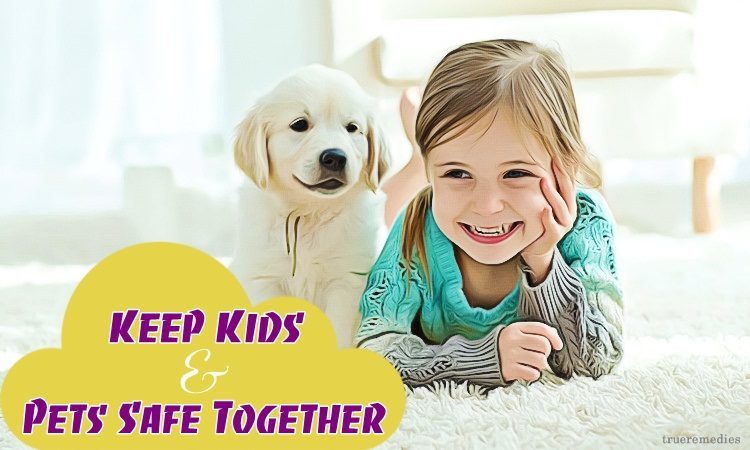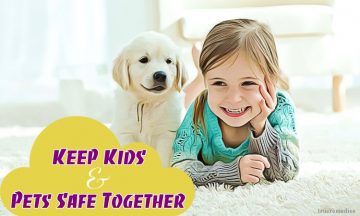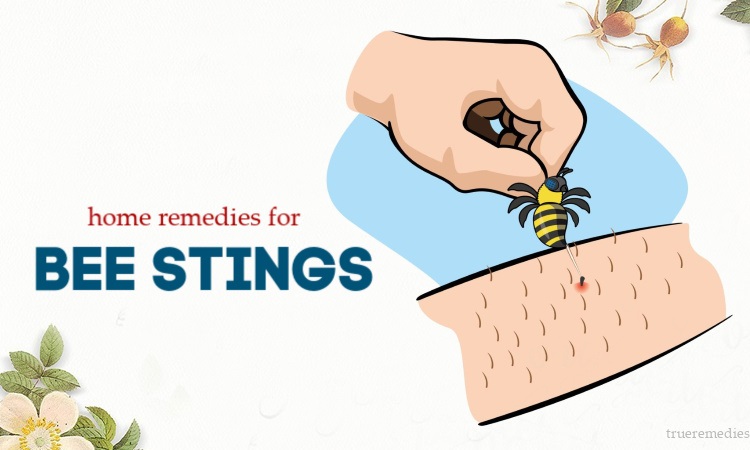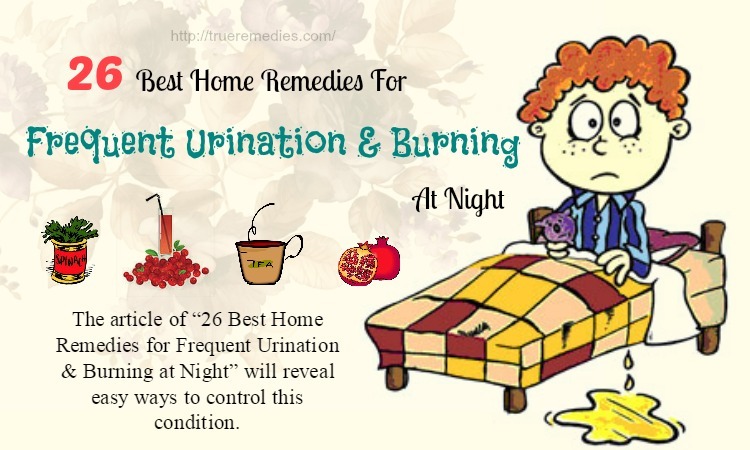Updated: 11/15/2019
Contents
Unlike inanimate kids' toys, pets are really like a close friend who has feelings, thoughts, and interactions with people. So many kids prefer to play with them than ordinary cars or stuffed animals. Because it is such a living entity, if you do not take precautions in all cases, it will cause harm to your kids. Usually, dogs and cats are the two most popular pets people raise at home. There are some other pets, but they are more dangerous, so people do not let them play with the kids. The common characteristic of these two species is very hairy, so hygiene is extremely important. If you want your kids to direct contact, you must clean them thoroughly like a human. No matter how much you care and nurture, they are just animals, and they always cause lots of potential harm to humans, especially to your kids. Below are some useful ways on how to keep kids & pets safe together introduced on Trueremedies.
Top 5 Simple But Effective Tips To Keep Kids & Pets Safe Together
I. How To Keep Kids & Pets Safe Together
1. Care For Your Pet Health
Keeping your pets clean and healthy is one of the best ways that help you to reduce the risk of spreading the disease from pets.
Washing your pet regularly every week is not enough; you also need to cut off the long hairs that causing dirt on the pet. If possible, let your pet go to pet care shops every month so that they can have their nails trimmed. This not only keeps their hygiene clean but also reduces the risk of harming you and your kids when feeding or playing.
Also, do not forget the routine health care for pets such as deworming about every six months, vaccinations and regular health checks in veterinary clinics. When pets are sick, do not directly contact them with the hands to avoid spreading the disease.
2. Caution Your Pet's Diet
The pet's diet is an important part to ensure your pets' health and reduce the risk of harm in pets. If you don't want to feed animal-specific foods, you can feed on your family diet, but feed with cooked food.
TrueRemedies Partner Solutions

Need a Help from the Leading Expert Online, Available 24/7?
They’re all here and ready to answer your questions online or by phone. Keep asking questions until you get the answer you need.
According to many studies, raw meat, raw fish, etc. are not only the cause of colic and diarrhea for pets but also make them more susceptible to rabies and more aggressive[1].
3. Mental Care For Pets
Dogs, cats, or any pets also like to live in a free, comfortable environment. If kept a lot indoors, especially in cramped cages, they will easily get angry and can scratch and bite people around.
To overcome this phenomenon, you should spend time with pets on walking, stroking and talking to them every day. You should wear a pet muzzle when letting them go out to protect people around, especially children.
4. Make Friends With Pets
Playtime is the perfect time for you to teach your kids how to be close to your pets, helping him better understand the pets' instinct and body language. Do not teach your kids to play games that irritate the pet, which can be dangerous if the pet scratches or bites him.
5. How To Handle When Having Pet Attacks
When attacked by dogs, cats, mice, or pets, you should calmly handle the bite at home at first to stop the bleeding and prevent the risk of rabies transmission. The specific steps need to follow:
- Wash the wound immediately under running warm water and then rinse it with an antibacterial soap.
- Scrub gently to remove dirt or foreign material from the wound.
- Use alcohol or antiseptic to wipe the wound gently.
- If bleeding out, apply a clean gauze pad or a sterile bandage to the wound and then press and hold on the wound to stop bleeding.
- Go to the health facility to check the wound.
II. Situations You Shouldn't Let Your Children Be Exposed To Dogs
Dogs are sleeping: Make your dog's sleeping place in a quiet place away from the acting area so that you and your kids will not be disturbed.
Dogs are eating: Do not let your kids come near when dogs are eating. Feeding dogs should be for adults, don't let your kids do it, or approach dog food and drinks.
Teach your kids not to interact with strange dogs, even if they seem familiar or friendly. If an unfamiliar dog approaches, the kid usually stands still with the hands hanging down on his hips and fearfully clenched. Teach your kid to be quiet, not to scream or stare at a dog. Instead, your kid should look at the ground and immediately sit down as if picking up a stone. At that time, the dog thought he was about to be stoned, so he often ran away. In the case of being bitten by a dog, teach your kid to curl up himself to ensure maximum safety.
Teach your children to stay away from dogs that show signs of moving their mouth, growling, backing away, putting hair on their backs or staring at you or your child.
When a dog takes your kid's toys or food, you should teach your kid to call for help and never try to get them back.
If your kid wants to pat a dog, ask him to always consult you before doing this. If it is not your dog, ask its owner to make sure it is safe for the child. Show your child how to pat a dog. You should model many times for him to imitate. Remember to be gentle and always wash hands after contact them.
If your kid or pet shows signs of dissatisfaction or discomfort, ask your kid to stop for safety.
III. Is Sleeping With Pets Safe?
Most people who keep pets always let them sleep with family members. A recent survey found that nearly half of all dogs sleep in their owners' beds, including 62% of puppies, 41% of medium-sized dogs, and 32% of large dogs. 62% of cats sleep with adults, and 13% of cats sleep with children. While sleeping with pets is not a dangerous activity and can be life-threatening, there are some potential dangers from this habit.
1. Health Problems
A 2015 study concluded the risk of infectious diseases from a pet to a person through close contact between pets and their owners[2]. Sharing a bed, kissing or licking a pet is real, and there have been a number of serious life-threatening infections such as the bubonic plague.
2. Affect Sleep
Snoring, kicking, and taking blankets are some of the things the owners may experience when sleeping with pets. This will certainly disturb your sleep. The results of a survey showed that about 53% of dog or cat owners were disturbed sleep in a variety of ways. Doctors recommend that people who have trouble sleeping should consider keeping pets away from their bedrooms.
It's undeniable that contacting and taking care of pets will help your kids learn many interesting things about life skills, sense of responsibility, confidence, etc. but at a certain angle, pets can be a danger to your kids. Hope that this article will be useful for you. If you want to ask any questions about ways on how to keep kids & pets safe together, please leave a comment in the comment box. For other informative writings, visit our Parenting cate!
Read more: 15 Natural Home Remedies For Diarrhea That Work. This article was medically reviewed/fact checked by Rachelle Caves RDN, CNSC, CPT.









